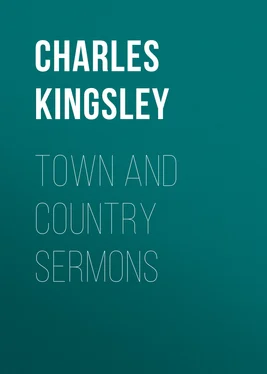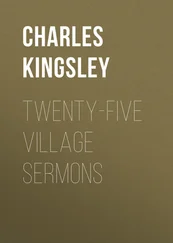Think over, I beseech you, this fact of the stupefying effect of mere material civilization; and remember that plenty and comfort do not diminish but increase that stupefaction; that Hebrew prophets knew it, and have told us, again and again, that, by fulness of bread the heart waxeth gross; that Greek sages knew it, and have told us, again and again, that need, and not satiety, was the quickener of the human intellect. Believe that man requires another bread than the bread of the body; that sometimes the want of the bodily bread will awaken the hunger for that bread of the soul. Bear in mind that the period during which the middle and lower classes of England were most brutalized, was that of their greatest material prosperity, the latter half of the eighteenth century. Remember that with the distress which came upon them, at the end of the French war, their spiritual hunger awakened—often in forms diseased enough: but growing healthier, as well as keener, year by year; and that if they are not brutalized once more by their present unexampled prosperity, it will be mainly owing to the spiritual life which was awakened in those sad and terrible years. Remember that the present carelessness of the masses about either religious or political agitation, though it may be a very comfortable sign to those who believe that a man’s life consists in the abundance of the things which he possesses, is a very ominous sign to some who study history, and to some also who study their Bibles: and ask yourselves earnestly the question, ‘From where shall a man find food for these men in this wilderness, not of want, but of wealth?’ For, believe me, that spiritual hunger, though stopped awhile by physical comfort, will surely reawaken. Any severe and sudden depression in trade—the stoppage of the cotton crop, for instance, will awaken in the minds of hundreds of thousands deep questions—for which we, if we are wise, shall have an explicit answer ready.
For it is a very serious moment, my friends, when large masses have had enough to eat and drink, and have been saying, ‘Let us eat and drink, for to-morrow we die;’ and then, suddenly, by not having enough to eat and drink, and yet finding themselves still alive, are awakened to the sense that there is more in them than the mere capacity for eating and drinking. Then begin once more the world-old questions, Why are we thus? Who put us here? Who made us? God? Is there a God? and if there be, what is he like? What is his will toward us, good or evil? Is it hate or love?
My friends, those are questions which have been asked often enough in the world’s history, by vast masses at once. And they may be answered in more ways than one.
They may be answered as the weavers of a certain country (thank God, not England) answered them in the potato famine with their mad song, ‘We looked to the earth, and the earth deceived us. We looked to the kings, and the kings deceived us. We looked to God, and God deceived us. Let us lie down and die.’
Or they may answer them—they will be more likely to answer them in England just now, because there are those who will teach them so to answer—in another, but a scarcely less terrible tone. ‘Yes, there is a God; and he is angry with us. And why? Because there is something, or some one, in the nation which he abhors—heretics, papists’—what not—any man, or class of men, on whom cowardly and terrified ignorance may happen to fix as a scapegoat, and cry, ‘These are the guilty! We have allowed these men, indulged them; the accursed thing is among us, therefore the face of the Lord is turned from us. We will serve him truly henceforth—and hate those whom he hates. We will be orthodox henceforth—and prove our orthodoxy by persecuting the heretic.’
Does this seem to you extravagant, impossible? Remember, my friends, that within the last century Lord George Gordon’s riots convulsed London. Can you give me any reason why Lord George Gordon’s riots cannot occur again? Believe me, the more you study history, the more you study human nature, the more possible it will seem to you. It is not, I believe, infidelity, but fanaticism, which England has to fear just now. The infidelity of England is one of mere doubt and denial, a scepticism; which is in itself weak and self-destructive. The infidelity of France in 1793 was strong enough, but just because it was no scepticism, but a faith; a positive creed concerning human reason, and the rights of man, which men could formulize, and believe in, and fight for, and persecute for, and, if need was, die for. But no such exists in England now. And what we have most to fear in England under the pressure of some sudden distress, is a superstitious panic, and the wickedness which is certain to accompany that panic; mean and unjust, cruel and abominable things, done in the name of orthodoxy: though meanwhile, whether what the masses and their spiritual demagogues will mean by orthodoxy, will be the same that we and the Church of England mean thereby, is a question which I leave for your most solemn consideration. That, however, rather than any proclamation of the abstract rights of man, or installations of a goddess of Reason, is the form which spiritual hunger is most likely to take in England now. Alas! are there not tokens enough around us now, whereby we may discern the signs of this time?
Конец ознакомительного фрагмента.
Текст предоставлен ООО «ЛитРес».
Прочитайте эту книгу целиком, купив полную легальную версию на ЛитРес.
Безопасно оплатить книгу можно банковской картой Visa, MasterCard, Maestro, со счета мобильного телефона, с платежного терминала, в салоне МТС или Связной, через PayPal, WebMoney, Яндекс.Деньги, QIWI Кошелек, бонусными картами или другим удобным Вам способом.












